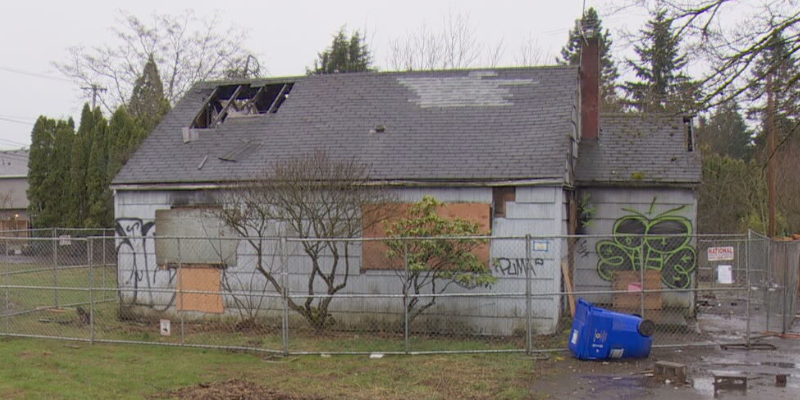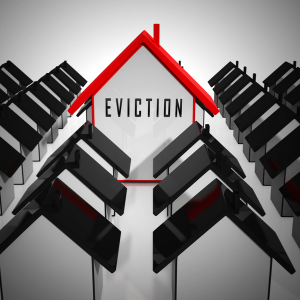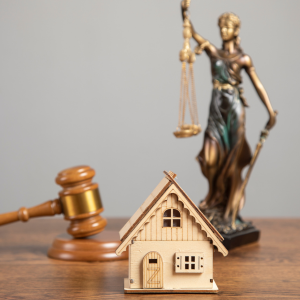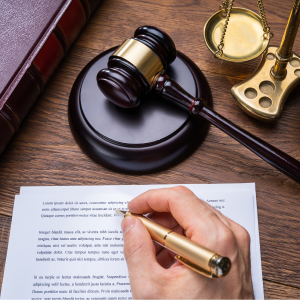
It is often said that the hardest thing to do is to remove a squatter from your property in Maryland. To deal with this problem practically while avoiding mental fatigue, knowledge of the law and the process required to remove a squatter is fundamental. The state of Maryland has a mechanism in its law books that outlines the steps you need to take to remove a squatter and do so legally. In this guide, you will discover these policies relevant to property repossession alongside helpful tips that will ease the process of squatter eviction. It does not matter if you own the property or are the landlord; following the Maryland law will give you a fair answer to a complicated investment problem.
Understanding Squatters’ Rights in Maryland
Maryland property owners struggle against squatters due to the tedious laws and procedures outlined. Knowing the squatters’ rights in Maryland is crucial for handling these issues and protecting their property rights. In most situations, squatters live on property without permission from the owner. Under specific circumstances and for a prolonged duration, they can attempt to claim possession legally.
Maryland’s legal constitution stipulates the range of adverse possession, which includes a specific period of time, shared use alongside, and dominantly continuous, open, and notorious occupation. These principles of land law are framed to promote land productivity and, conversely, diminish owners’ land use neglect. Therefore, the land claim and property ownership obligations must be addressed to be apprised of the doctrine and its corresponding implications.
A legal understanding of the property rules enables an owner to prepare and minimize the impact if someone antagonizes the property. Controlled and defined measures will allow them to prepare a legal defense and protect them from loss of advertisement. There are many instances where property rights and squatter laws are breached in a legally defined framework; Maryland laws are an example. As hostile occupants are not easily accessible to the mundane and inefficient legal system, an understanding owner can prepare a well-defined strategy to resolve the consequences strategically and in a legally unassailable manner.
The Legal Framework for Squatters
In Maryland, the doctrine of adverse possession allocates squatters‘ rights. This doctrine permits an individual to claim legal ownership of a property after continuously occupying it for 20 years, so long as the possession is open, notorious, and unpermitted by the real owner. The doctrine seeks to maximize land productivity while minimizing land neglect. To meet the doctrine’s thresholds, squatters must demonstrate uninterrupted possession and treat the land as their own, which contradicts the owner’s title claim.
Acts of Maryland in possession of squatters require the longtime occupants and legal owners’ balance to be maintained; hence, possession must be proven legally. Occupants of legally acceptable lease durations or contracts are not afforded squatter rights, although the legal boundaries of possession and squatting can be rather disputable.
Landowners face an added complication in being unable to remove squatters. They would rather initiate legal processes like detainer actions in court. Thus, owners attempting to defend their property while maintaining legal compliance must thoroughly appreciate squatters’ rights and adverse possession.
Direct MD Cash Buyers can help property owners in Maryland by providing expert guidance on squatter laws, assisting with proper legal actions such as filing detainer cases, and ensuring compliance with state requirements. We focus on protecting ownership rights, preventing adverse possession claims, and streamlining the process to safely and lawfully regain control of your property.
Implications of Maryland Laws on Property Owners
The rules regarding squatters in Maryland impose severe consequences on a property owner’s right to the property, which is very cumbersome to process. Maryland is different from other states that allow self-remedy actions. The state has bail legal procedures. The property owner has to follow specific rules, which protect the squatters, too.
All property owners make mistakes, which can be expensive, resulting in a court filing to avert slack court management. A blatant adverse possession case permits the legal owner to swiftly file a court case, reducing the unnecessarily expensive stretching of legal proceedings. All legal action has to be methodically planned and controlled.
The lack of proactive property governance is equally negligent as the lack of all other types of management. Owners are armed with valid legal recourse, provided they maintain the proper boundaries of legal exercise of such rights. Such absence of action, however, will only engender the property owner’s stance as the ‘willing victim’ of inordinate legal action, as is the case with recalcitrant trespassers. Owners are encouraged to perform risk management best practices by taking swift action.
Maryland’s approach is fundamentally about maintaining a balance between the rights of the occupants and the rights of the property owner. The owner has the right to claim unlawful possession of the property, but the process is complicated. Well-educated property owners with all the appropriate information will mitigate the intricacies and best defend their rights.
Navigating the Eviction Process in Maryland

Like all other states, Maryland has specific eviction procedures, which makes dealing with squatters a problem for property owners. However, Maryland takes a more sophisticated approach to the problem, meaning that squatters are afforded some legal protection. Knowing the procedures necessary to reclaim possession of a property is essential to doing so without incurring substantial legal costs.
The first step is identifying whether the occupants are squatters or tenants, since this distinction dictates the legal remedies available. Regardless of the property owner’s status, the squatters may be subject to a court action for wrongful detainer. This involves filing legal documents and notices and waiting for the court to hear a possession case.
The most significant problems remain evidenced by electronic service court delays, people contesting the action that they are squatters and wish to stay longer, and some will even argue adverse possession and/or other defenses, all of which are problematic.
Property owners can more easily circumvent expositions in Maryland by proactively working with legal professionals. By complying with the state’s most critical expectation, which uploads the legal framework, ownership, and the exposed unlawfully unoccupied are saved.
Steps to Initiate the Eviction Process
Understanding How Long an Eviction Process takes begins with following Maryland’s strict legal steps. The first task is determining whether the occupants are tenants or squatters, as this affects which laws apply. Landlords must then serve a formal notice demanding the squatter vacate, typically through a wrongful detainer action when no valid lease exists. As property owners who find the process overwhelming, you may also choose to sell your house for cash in Maryland as a faster alternative to dealing with lengthy legal battles.
A squatter’s refusal to depart results in the landlord complaining to the district court. This involves gathering legal documentation, proof of ownership, copies of notices, and evidence that the squatter’s claim has no legal grounds to stay. After that, the court schedules a hearing open to both parties to provide a rationale behind their claims, and the court then passes its ruling.
If the landlord wins, the court will provide a warrant for possession, allowing the landlord to remove the squatters legally. This means the eviction is legal since the landlord cannot remove occupants or change the locks. Self-help eviction, or attempting to remove occupants alone, comes with strict legal repercussions.
During this stage, attention to detail and documentation compliance can become very complicated, especially with informal arrangements such as accepting rent. Thus, landlords should obtain legal advice from a specialist in Maryland eviction procedures to safeguard against legal missteps and retain ownership of their properties.
Common Challenges in the Eviction Process
As with any location, Maryland possesses a particular nuance regarding the eviction process, which Maryland courts have to administer, such as determining the legal status of squatters. Unlike a tenant, a squatter does not hold any interest in the property in dispute, consequently impacting the methodology for removing the squatter from the property.
The Maryland Barnstable courts continue to face delays due to limited capacity, rigid deadlines, or a lack of documentation, which makes the entire process slow. Any mistakes made in the documentation can lead to unresolved disputes. Civil disturbances claiming property ownership through unlawful means can also exploit adverse possession, a common scenario in which property owners find themselves, as claims are made with insufficient evidence.
Self-rehabilitation steps, such as changing locks, are disallowed, thus restricting property owners to pending formal actions only. Though this can be overwhelming, it is prudent to consult a legal expert to ensure that actionable steps comply with Maryland’s legal framework to avoid delays.
Self-preparation and alertness are primary. By anticipating challenges foreseen by the owners as common, property owners are empowered to approach legal and procedural steps to achieve a result that is less in conflict over time.
Legal Actions for Squatter Removal in Maryland

Maryland’s approach to squatters focuses on legally actionable methods for removal. The law balances the owner’s interests alongside those of squatters and thus imposes complicated procedures. Owners must know about adverse possession, wrongful detainer actions, and self-help eviction boundaries. The resolution of these conflicts is often contingent on the timing of formal actions relative to the person’s removal, which is often more complicated and conveys more risk.
The timing involved in removing squatters, no matter how long the individual has occupied the space, is essential. Taking action at the earliest stage is advantageous as it adds further merit to the possession claim. Court Orders centralize the removal process as they allow the owner to call upon the authorities, who always hold the removal process to legal standards.
In the case of squatters, Maryland real estate owners observe the legal overlay, which offers vital unlawful eviction protection. Prompt action has to be taken, as it is crucial to avoid retention of possession pending the issuance of a lawful eviction of squatters. A misplaced balance of legal understanding with compliance is all too handy when solving the issue.
If you’re facing squatters in Maryland, don’t navigate the process alone—contact us today for guidance and support in protecting your property rights and ensuring the removal is handled legally and effectively.
When to Consider Legal Actions
In Maryland, the timing of the decision to commence a removal process is complex and depends on the duration of occupation and the risk squatters pose to the property. Maryland law assists in legal measures that stop disputes from escalating, but only when such disputes are on the verge of erupting and are detectable.
Property owners must confirm the oversized definition of tenant agreements and establish that none exists. Squatters are, contrary to legal tenancies, under the landlord-tenant laws, and the distinction of the two is essential to avoid reckless decision-making. The occupant’s status determines the basis for the claim, which is to transform the legal claim into a contradictory claim for wrongful detainer.
The owner-tenant relationship and the documents and notices serve as proof of, in the absence of landlord-tenant relationships, bolster the owner’s position and undermine several adverse possession claims. Record management and documentation ensure equally seamless litigation with minimal hindrance to the business.
The owner usually fails to react promptly to specific actions and loses control of the documents. Action happens late and is less favorable if entry points or building services are invasive with the Borders of the property. Visibility and cognizance of acts strategically done to the specific Maryland protective acts and laws the owner is exposed to will ease the rights sloshed to other parties and resultant legal charges the owner has to pay.
The Role of a Court Order in Squatter Disputes
In squatter disputes in Maryland, court orders become essential in affirming the owner’s possession rights, lawful eviction, and avoiding illegal removals that could censor them. Court orders are the beginning steps of the wrongful detainer action. They request ownership proof and occupancy consent to remain. The court also considers unchanged ownership evidence, property records, past communications, and squatter notices helpful in the unlawful claim.
If squatters lose ownership, they can request possession from the court. If the court agrees, squatters can reclaim ownership and file charges against the squatters. After that, squatters can reclaim possession and counter the attempts by squatters to use loopholes by claiming possession of the property. The court aims to protect property possession and fortify property rights under Maryland law. The court also limits the owner’s actions to ensure they don’t lose their property in the future.
Having a lawyer throughout the entire process benefits the case and mitigates process risks. Legal apprehension is alleviated when a court order is obtained, and peace is enormously empowering for the property owners as they can now deal with the squatters legally and effectively.
Meeting Possession Requirements in Maryland

Understanding and meeting possession requirements in Maryland is critical for property owners who want to safeguard their real property from squatters. This process goes beyond simply holding title—it requires awareness of state laws, particularly the nuances of adverse possession and wrongful detainer actions. Adverse possession, for example, sets strict conditions under which an unauthorized occupant may eventually gain rights to a property. At the same time, wrongful detainer laws outline the proper legal remedies for removing unlawful occupants.
Neglect and inaction can seriously undermine a dispute, and to keep one’s interests on firm legal ground, one must be active in the claim. Insight and swift action on invasions during property inspections, coupled with the resolution of legal aspects, can reverse aggressive outcomes. When appropriately documented, the issue is removed entirely.
Effective risk management of squatting as a legal phenomenon involves practical steps such as establishing physical security and understanding the legal framework. Timely risk control and dispute resolution are only possible if the property is monitored consistently over a prolonged period. This is the only way to maintain undisputed property ownership at any given period in the future.
How Possession Requirements Impact Property Claims
Possession requirements in Maryland are central to property claims, especially in squatter and adverse possession disputes. To claim ownership through adverse possession, a party must show continuous, open, and notorious possession for at least 20 years. This rule encourages active land use and prevents abandonment, underscoring the importance of clear possession in shaping property rights.
Understanding these requirements is critical for property owners. Regular inspections, maintenance, and precise control of the property help prevent squatters from meeting adverse possession standards. Active management not only reinforces ownership but also prevents unauthorized claims.
If squatters do not vacate the premises, wasteful detainer actions can be instituted and pursued. Though Maryland’s Wrongful Detainer statutes provide a simplified procedure to remove detainers and regain lawful possession of property, the law has unique requirements. The court might require specific forms of evidence, such as emails and other communications about the property, as well as the property itself, the measures the claimant undertook to safeguard the property, and other activities undertaken to ascertain possession of the property.
Documentation is the most reliable proof. Constructive possession can be substantiated through careful monitoring, fulfilling the requirements, and possessing the property. A Negative Framework, which blankets the property with adverse possession requirements, is avoided by keeping proactive cover.
| Aspect | Importance | Action Steps | Legal Consideration |
|---|---|---|---|
| Property Documentation | Ensures proof of ownership | Schedule routine check-ups and employ a property management company | Check Maryland’s title requirements |
| Regular Inspections | Prevents unauthorized occupancy | Maintain up-to-date records. Store documents securely | Ensure adherence to access laws |
| Security Measures | Deters potential squatters | Schedule routine check-ups and employ a property management company | Follow Maryland’s security regulations |
| Legal Awareness | Facilitates informed decision-making | Consult with a real estate attorney. Attend relevant legal seminars | Understand adverse possession laws |
| Community Engagement | Fosters local network support | Consult with a real estate attorney. Attend relevant legal seminars | Know local squatter policies |
This table highlights Maryland’s critical possession requirements and the proactive measures property owners can take to secure their rights against squatter claims.
Proactive Measures to Secure Your Property
Proactively securing property against squatters in Maryland requires a mix of legal, preventive, and management strategies. A clear understanding of possession requirements is essential, as they form the basis of property rights and potential adverse possession claims. Regular inspections are one of the most effective preventive steps. Routine, documented checks help detect unauthorized occupancy early and demonstrate the owner’s ongoing oversight.
Strengthening physical security is equally important. Sturdy locks, alarm systems, and visible signage marking private property can deter squatters, provided these measures comply with state and local regulations. Maintaining thorough documentation further reinforces ownership claims. Property owners should keep records of title, inspections, communications, and legal filings such as notices or wrongful detainer actions, ensuring they have solid evidence if disputes arise.
Finally, engaging legal counsel can provide valuable protection. Attorneys versed in Maryland property law can advise on possession requirements, draft and serve legal documents, and guide owners through detainer proceedings. By combining inspections, security measures, record-keeping, and legal support, property owners can strengthen their claim to possession, reduce the risk of adverse possession, and better protect their assets against squatters. For those seeking faster solutions, working with a cash for houses company in Frederick and surrounding cities in Maryland can also provide a quick and hassle-free way to resolve unwanted property challenges.
Practical Strategies to Remove Squatters in Maryland
Removing squatters from your property in Maryland can be complex and stressful. Property owners must carefully navigate a maze of state laws to ensure they act within legal boundaries while protecting their rights and interests. The process requires a solid understanding of the legal framework that governs squatters and unlawful occupants and a practical approach to documentation, court procedures, and enforcement. Even minor missteps can delay the process or create additional complications, making it vital to proceed with accuracy and care.
In addition to pursuing legal action, property owners should take proactive measures to prevent squatting. This includes securing vacant homes with strong locks and reinforced entry points, maintaining regular inspections to ensure the property is monitored, and installing visible security systems to deter unlawful entry. Clear signage and active maintenance, such as lawn trimming or functioning utilities, can signal that a property is not abandoned.
By combining preventive efforts with a thorough grasp of the legal process, landlords and property owners are better equipped to regain possession of their property successfully. Mastering these strategies reduces risks, resolves disputes more efficiently, and helps safeguard valuable real estate investments from unwanted occupation.
Preventive Actions Against Squatters
Preventing squatters in Maryland requires both legal awareness and effective property management. Strengthening security is the first line of defense—installing quality locks, cameras, and lighting deters unlawful entry and signals that the property is actively managed. These measures must comply with local regulations to avoid tenant-rights issues.
Regular inspections are equally important. Owners should check for signs of trespassing, document visits with photos and reports, and keep records to support legal claims if unlawful occupation occurs. This documentation is critical in actions like wrongful detainer cases. Consulting real estate attorneys adds another layer of protection. They can clarify Maryland’s possession laws, prepare tailored legal notices, and advise on steps to prevent squatters from making adverse possession claims.
Thorough record-keeping further strengthens defenses. Maintaining detailed logs of inspections, notices, and security upgrades builds credibility in court and demonstrates active ownership. Engaging local police and community watch programs also helps. Neighbors and authorities can provide oversight and quickly report suspicious activity.
Physical security, legal preparedness, consistent documentation, and community involvement create a strong framework for preventing squatting while safeguarding the owner’s rights under Maryland law.
FAQs:
What is adverse possession in Maryland?
Adverse possession in Maryland is a legal principle allowing someone to claim ownership of property they’ve occupied continuously, openly, and notoriously for at least 20 years, without the owner’s permission, and satisfy other legal conditions.
How can property owners legally remove squatters in Maryland?
Property owners must follow a legal eviction process. First, they must confirm that the occupants are squatters, then issue a formal notice and file a wrongful detainer action in court if the squatters do not vacate.
Why is a court order necessary to evict squatters in Maryland?
A court order is necessary because Maryland law prohibits forceful evictions. A court order provides legal authority to remove squatters and ensures actions are conducted lawfully.
What steps should owners take to prevent squatters?
Owners should enhance property security with locks and cameras, conduct regular inspections, maintain clear documentation, and engage with legal professionals for advice to deter squatters.
How can property owners differentiate between squatters and tenants?
To differentiate, confirm that there is no valid landlord-tenant relationship with the occupant. Squatters occupy property without legal permission, unlike tenants who may have a lease agreement.
Do you need to sell your house? Sell it quickly, avoid costly repairs, or prefer a hassle-free sale. Direct MD Cash Buyers is here to help. We offer fair cash offers, handle all the details, and make the process seamless. Ready to sell or have questions? Call us at (443) 391-7080 for a no-obligation offer. Get started today!
Helpful Maryland Blog Articles
- Selling A Probate House In Maryland
- How Long After an Appraisal Can You Close in Maryland?
- Selling a House with Mold in Maryland
- How Do You Get Rid of Squatters in Maryland?
- Can You Sell a House with a Lien in Maryland?
- How to Negotiate Repairs After a Home Inspection in Maryland
- Selling a House with Foundation Problems in Maryland
- Capital Gains Tax After Selling a House in Maryland
- How to Sell an Investment Property in Maryland
- How to Sell a House With Title Issues in Maryland
- Sell House with Water Damage in Maryland
- How to Sell a Hoarder House in Maryland
- Homeowners Insurance When Selling a House in Maryland
- Do I Need a Lawyer to Sell My House in Maryland?

